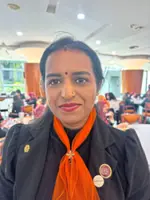The lobby for a law on sexual harassment started in the late 1990s.
“It began in 1999, when the Women’s Centre for Change, Penang received complaints of sexual harassment from six women working in a resort hotel in Penang,” says veteran women’s rights activist Ivy Josiah.





